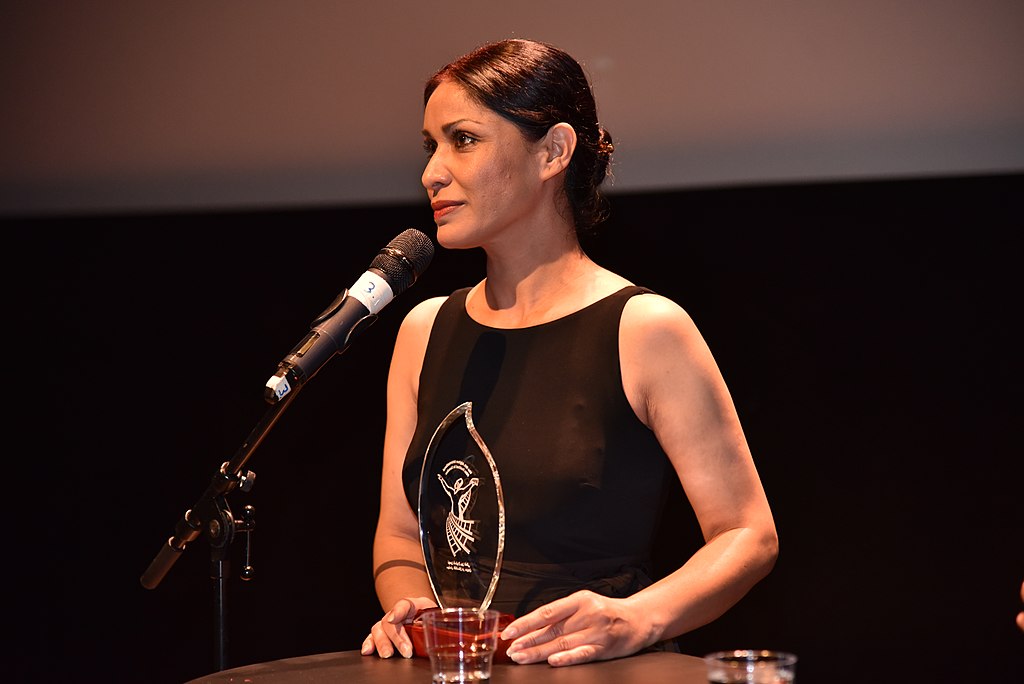
Born in Kabul, Afghanistan, Leena Alam’s family fled her home country’s civil war and settled in the United States when Alam was thirteen years old. She quickly found her way into modeling, dancing, and acting, winning talent shows and pageants in the San Francisco area throughout her teen years. By the time she was twenty, she had landed roles in two feature-length films. Her performance in Hafiz Asefi’s In Foreign Land drew the attention of several Afghan film directors, and she quickly established herself as a leading lady of Afghan and Afghan-American film.
For much of her acting career, she accepted high-risk roles in movies that portrayed the dangers and inequalities faced by women living under the constant threat of Taliban rule. This often made her a target, and production in Afghanistan had to move quickly. For 2017’s Black Kite, Alam and the filming crew shot the entire movie in a two-week period, moving locations constantly so as not to be stopped and potentially captured by the Taliban.
In what was perhaps her most provocative and dangerous role, Alam portrayed Farkhunda Malikzada, a 27-year-old woman who was beaten and burned to death by a mob in the streets of Kabul after being accused of burning the Quran. Forty days after Malikzada’s death, Alam joined a group of activists to reenact the lynching near its original location. Her performance reportedly seemed so real that nearby policemen wept.
Alam has been back in the U.S. for the last few years, and after the U.S. withdrew from Afghanistan in 2021, she found new ways to shed light on the country’s ongoing struggles. She took part in the Los Angeles Writers’ Center’s The Voices of Afghanistan, a collection of monologues that portrayed the real-life struggles and traumas of women under Taliban rule. Her continued activism landed her a spot on the 2021 BBC list of 100 inspiring and influential
